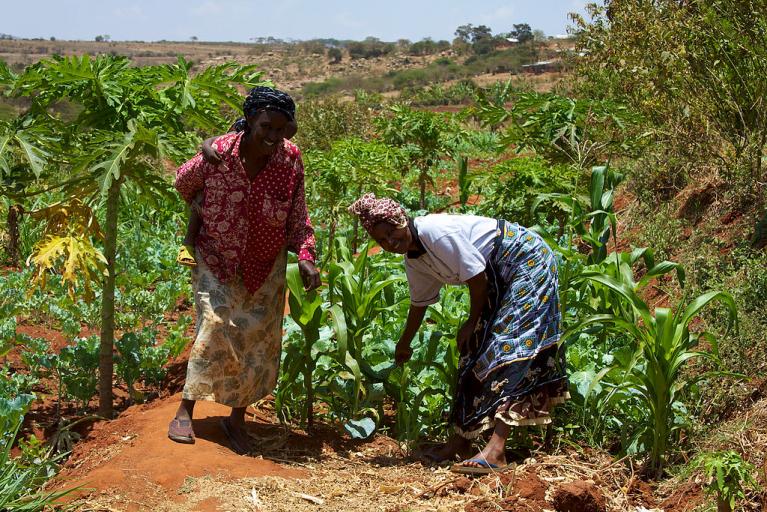Latest Resources

22 October 2024
Resistance against “bogus” drought tolerant (DT) maize in South Africa: a snapshot of two decades...
UPDATE: After nine years of arduous litigation by the ACB, a full bench of the Supreme Court of Appeal on 22 October 2024 set aside several layers of decision-making regarding the approval of the application by Monsanto, now Bayer, for commercial release of its drought-tolerant genetically modified maize, MON87460. 28 June 2023 UPDATE: In 2023, […]

27 July 2022
Playing chess with the world’s biodiversity. The post-2020 Global Biodiversity Framework and Afri...
A blog by ACB’s Sabrina Masinjila, Linzi Lewis and Mariam Mayet The crafting of a new global biodiversity framework In 2018, Parties to the Convention on Biological Diversity (CBD) embarked on multilateral intergovernmental talks toward crafting a new global deal to curb global biodiversity loss (the Post-2020 Global Biodiversity Framework (GBF).1 The CBD, adopted in […]

22 June 2022
The failure of multilateralism – and rise of corporate capture of the CBD
The current state of the planet, and in particular climate change, biodiversity loss, and land degradation, reflect on the legitimacy of environmental multilateralism such as the Convention for Biological Diversity (CBD). The convergence of the multiple global ecological, climate, and economic crises is not been met with the requisite urgent response and action. Instead, over […]

22 June 2022
Who will fund biodiversity conservation, and its implications for Africa?
Where adequate funds will come from to reduce rampant biodiversity loss is crucial to ensuring the implementation of the Global Biodiversity Framework (GBF). African countries are demanding that developed countries pay for their ecological debt, and implementation of the GBF, in terms of Article 20 of the Convention for Biological Diversity (CBD). But how will […]

21 June 2022
Where is agricultural biodiversity in the Post-2020 GBF?
While the Post-2020 Global Biodiversity Framework (GBF) attempts to deal with the indirect and direct drivers of biodiversity decline, as outlined by the Intergovernmental Science-Policy Platform on Biodiversity and Ecosystem Services (IPBES) and the Global Biodiversity Outlook Reports, it remains glaringly weak, with serious and severe gaps. We wonder, where does the Post-2020 GBF deal […]

25 February 2020
Insights from farmer dialogues in Kalulushi, Zambia
In 2019, the African Centre for Biodiversity (ACB) co-hosted four farmer exchanges in Zambia. The first was in Kalulushi, Copperbelt Province, in partnership with the Zambia College of Horticultural Training (ZCHT) Chapula, Kasisi Agricultural Training Centre (KATC), and the Zambia Alliance for Agroecology and Biodiversity (ZAAB). ACB Advocacy and Research Officer Rutendo Zendah gives an […]

28 March 2019
Cyclone Idai’s warning – Shift to agroecological systems that work with nature or suffer more dev...
Ranked as one of the worst tropical storms on record to hit Africa, Cyclone Idai made landfall in Beira on Thursday 15 March, before lacerating its way across central Mozambique and then on towards neighbouring Malawi and Zimbabwe. Heavy rains, flooding and storm damage has resulted in devastation on a vast scale. It is estimated […]

4 March 2019
Failure of Monsanto’s drought tolerant maize pushed on Africa – confirmed in US
The ACB shares with you a blog written by ACB’s Sabrina Masinjila and Anne Maina from Biodiversity and Biosafety Association (BIBA), Kenya A recent United States Department of Agriculture (USDA) report confirms what independent biosafety scientists, and African civil society, have been stating all along: Monsanto’s drought tolerant (DT) maize (MON87460) does not work! The […]

1 November 2018
Demystifying GM maize through collective action on World Food Day
In an effort to highlight the complex and concentrated South African agricultural and food system, with its unsustainable and deepening inequality, the African Centre for Biodiversity (ACB) and partner organisations initiated a “no GMO-maize campaign” earlier in 2018. This was followed up in August 2018, with a meeting of organisations that included Zingisa, Ntinga Ntaba […]

30 October 2018
Reflections on ITPGRFA, UPOV 1991 and South Africa
Recently the Department of Agriculture, Forestry and Fisheries (DAFF) held national consultations on whether South Africa should accede to two international agreements related to seed: The International Treaty on Plant Genetic Resources for Food and Agriculture (ITPGRFA, or the Treaty) and the International Convention on the Protection of New Varieties of Plants (UPOV) 1991. The […]
